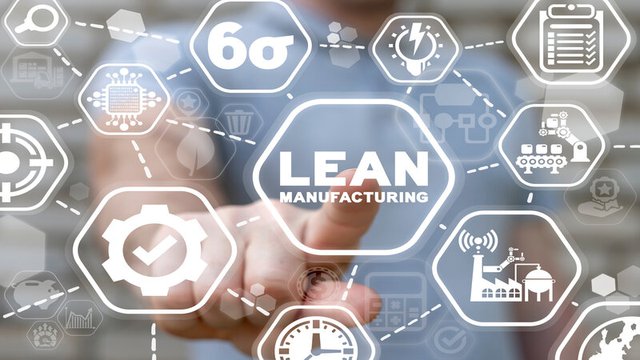
What is lean manufacturing?
Oct. 10, 2025

In an increasingly competitive industrial world, companies are seeking ways to improve efficiency, reduce waste, and maximise value — not just for their bottom line, but for their customers too. One of the most influential methodologies to achieve this is Lean Manufacturing.
For students interested in mastering these principles and applying them to the development of more efficient production systems, the Degree in Mechanical Engineering at Universidad Europea offers the ideal foundation. The programme combines theoretical knowledge with practical experience, preparing future engineers to implement lean strategies in real-world settings.
Definition of lean manufacturing
Lean manufacturing is a systematic approach to optimising production by eliminating waste and improving processes. Originating from the Toyota Production System in Japan, its main objective is to deliver maximum value to the customer while using the fewest possible resources.
In other words, lean manufacturing is about doing more with less — less time, less effort, less material, and less cost — without compromising quality or innovation.
The term “lean” reflects this emphasis on streamlining operations, improving workflow, and empowering workers to identify inefficiencies and suggest improvements.
The five key principles of lean manufacturing
The lean methodology is structured around five essential principles that guide companies toward operational excellence:
- Value – Define what truly adds value from the customer’s perspective.
- Value Stream – Map all processes involved in delivering that value to identify and remove non-value-adding activities.
- Flow – Ensure production runs smoothly without interruptions or bottlenecks.
- Pull – Manufacture only what is needed, when it’s needed, avoiding overproduction and excess inventory.
- Perfection – Continuously refine processes through feedback and data-driven improvement.
Students in engineering disciplines often study these principles as part of courses in industrial management and production systems, learning to apply them to both manufacturing and service environments.
The benefits of lean manufacturing
Implementing lean manufacturing can bring a wide range of advantages to companies and employees alike:
- Reduced waste and cost: By identifying unnecessary steps, materials, and time losses, organisations operate more efficiently.
- Improved product quality: Lean processes focus on defect prevention rather than correction.
- Greater customer satisfaction: Faster delivery and consistent quality enhance the customer experience.
- Increased employee involvement: Lean encourages collaboration and continuous feedback from all levels of the organisation.
- Enhanced sustainability: Efficient use of resources supports environmental and economic sustainability goals.
These benefits make lean manufacturing a key component of modern industrial strategy — one that engineers must master to remain competitive in a globalised market.
Lean manufacturing tools and techniques
To implement lean principles, engineers use a variety of tools designed to identify inefficiencies and improve processes. Some of the most common include:
- 5S Methodology (Sort, Set in Order, Shine, Standardise, Sustain): a workplace organisation system that promotes efficiency and safety.
- Kaizen: a philosophy of continuous, incremental improvement.
- Value Stream Mapping (VSM): a visual tool for analysing the flow of materials and information throughout a process.
- Kanban: a scheduling system that controls production and inventory through visual signals.
- Just-in-Time (JIT): producing goods exactly when needed to minimise inventory and waste.
In the Degree in Mechanical Engineering, students explore how these tools are used in real industry settings — from automotive manufacturing to robotics and energy systems — developing the skills to lead process improvement projects.
Lean manufacturing and industry 4.0
Lean manufacturing continues to evolve with the rise of Industry 4.0, the era of smart factories and digital integration. Technologies such as artificial intelligence, the Internet of Things (IoT), and data analytics are helping companies make lean systems even more efficient.
For instance, digital sensors can monitor production lines in real time, detecting inefficiencies automatically. AI algorithms can predict maintenance needs before breakdowns occur, further reducing downtime and waste.
At Universidad Europea, the engineering curriculum integrates these modern approaches, combining traditional lean principles with digital innovation — a vital combination for the engineers of tomorrow.
The human element in lean manufacturing
While technology plays a central role, the true strength of lean manufacturing lies in its focus on people. Lean culture encourages teamwork, communication, and respect for every employee’s contribution. Continuous improvement (Kaizen) depends on the involvement of everyone, from line operators to managers.
This human-centred philosophy aligns perfectly with Universidad Europea’s educational model, which promotes experiential learning and leadership through collaboration and innovation.
Conclusion: the future of lean thinking in engineering
Lean manufacturing is more than a methodology — it’s a mindset that drives constant improvement, innovation, and value creation. As industries continue to evolve, engineers trained in lean principles will be at the forefront of building smarter, more sustainable production systems.
In summary:
- Lean manufacturing focuses on eliminating waste and maximising value.
- It’s guided by five principles: value, value stream, flow, pull, and perfection.
- Key tools include 5S, Kaizen, Kanban, and Just-in-Time.
- Industry 4.0 technologies are making lean systems even more efficient.
- The Degree in Mechanical Engineering at Universidad Europea prepares students to lead this transformation.
For those looking to expand their expertise, Universidad Europea offers a comprehensive portfolio of engineering degrees, from mechanical and industrial to aerospace and civil engineering — each designed to prepare students for the demands of a rapidly changing technological world.